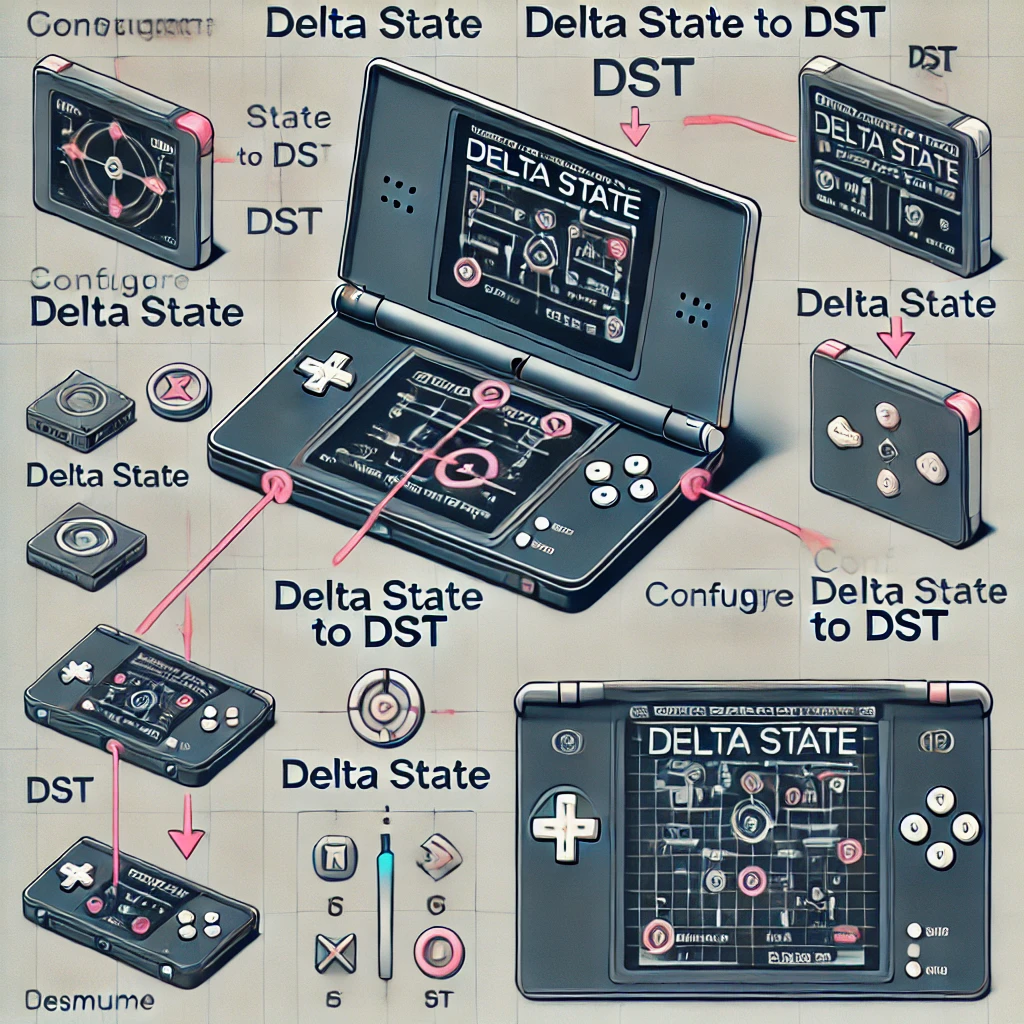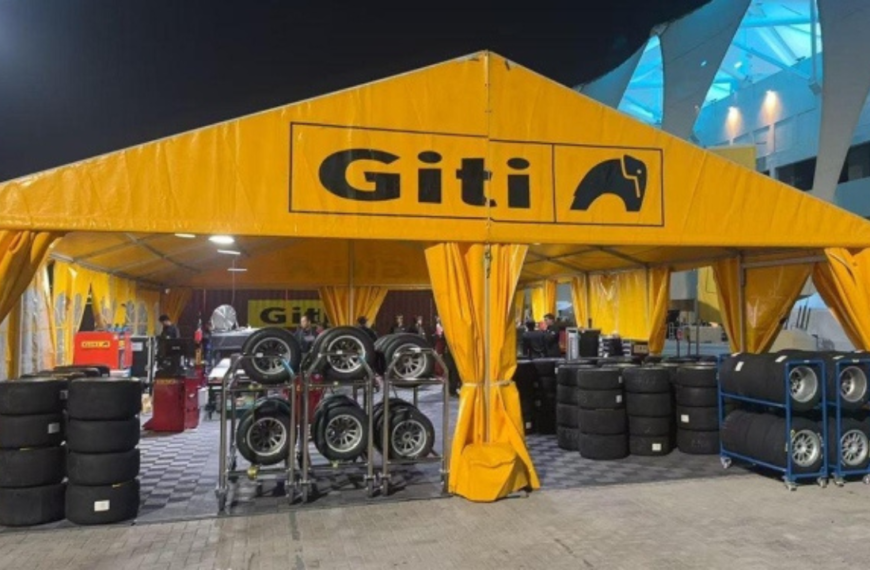In the world of video game emulation, Desmume is a popular Nintendo DS emulator known for its ability to faithfully replicate the gameplay experience. As players dive into the intricacies of emulation, they encounter various settings and options that impact the way games run, one of which is the management of time-related features. Two key terms come up when dealing with time in Desmume: Delta State and DST (Daylight Saving Time). Both of these settings influence how in-game time is handled, and understanding them is crucial for ensuring an accurate and seamless gaming experience.
Delta State refers to a specific snapshot of a game’s state at a given point in time, including the way time progresses within the game. It’s a useful tool for saving your game at particular moments, allowing you to return to that exact state later. However, when it comes to managing time-based events, DST (Daylight Saving Time) introduces the need to adjust the in-game clock to account for seasonal shifts, a feature that is relevant in certain games where time management is crucial.
For some users, the need to transition from Delta State to DST arises when they encounter problems related to time progression, especially in games that incorporate daylight saving time mechanics. This shift ensures that the in-game clock stays accurate and adapts to seasonal changes, offering a more authentic experience. Transitioning from Delta State to DST in Desmume may be necessary for improving synchronization with real-world time, correcting time-related glitches, or optimizing gameplay in titles that require accurate in-game time adjustments.
What is Delta State in Desmume?
Delta State in Desmume refers to a specific method of saving and managing a game’s progress, particularly focusing on the way time is tracked within an emulated game. It captures a snapshot of the game’s state at a given moment, including various elements like the gameplay progress, settings, and time-related data. Essentially, Delta State is a “difference” file, meaning it records only the changes (or deltas) made since the last save point, rather than creating a complete save file. This allows for more efficient storage and the ability to easily return to an exact moment in the game without the need to reload a large file.
Purpose of Delta State: Delta State is designed to give users greater control over their emulation experience by offering an efficient way to preserve the state of a game. It provides a level of flexibility that allows you to “rewind” to specific points without starting over completely. This can be useful for debugging, experimenting with different strategies, or simply for ensuring that you can return to your game at a critical moment—especially in games with complex or time-sensitive scenarios.
How Delta State Works Within the Desmume Emulator
When you’re using Desmume, the Delta State system operates by saving only the changes that occur between the current state of the game and the previous save. This means that rather than saving an entire game state in its entirety (which could take up a significant amount of storage space), only the parts that have changed are recorded. This system works in tandem with other save features in Desmume, allowing users to “snapshot” specific moments in gameplay and return to them with ease.
For instance, if you’re playing a game that includes day-night cycles or other time-based events, Delta State will keep track of the changes in the in-game time. However, since it doesn’t account for Daylight Saving Time (DST) or other adjustments based on real-world time, this can lead to discrepancies if the game requires time to adjust for such shifts.
Delta State works primarily through the File menu, where users can save and load the game state. You can manually save a Delta State, or the emulator may automatically save it during specific actions (like when switching between areas or completing specific tasks).
Benefits of Using Delta State
- Efficient Storage: One of the main advantages of Delta State is the way it conserves storage space. Since only the differences between game states are saved, it uses less memory compared to saving the entire game. This makes it particularly useful for those who want to keep multiple save states without taking up large amounts of disk space.
- Faster Load and Save Times: Due to the way Delta State captures changes rather than full game states, the process of saving and loading is much faster. Players can quickly save progress and reload it without having to wait for lengthy save times, making for a smoother and more convenient gaming experience.
- Flexible Game Progression: Delta State allows users to save their progress at almost any point during gameplay. This feature is helpful when you want to experiment with different actions or decisions, knowing that you can return to a previous point easily. It’s particularly useful in games where you’re testing out different approaches or strategies and need to undo certain choices.
- Precise Control Over Gameplay: Because you’re saving only the changes in the game, you gain more precise control over your saved states. If you’re playing a game with specific events or conditions tied to time, you can easily revisit and adjust to ensure that you’re getting the desired outcomes. However, it’s worth noting that in some cases, this doesn’t handle time-shifting features like DST adjustments, which leads us to the importance of knowing when to transition to DST.
Delta State is a powerful tool in Desmume, allowing players to efficiently manage and store multiple game states, providing flexibility, and enabling experimentation. However, when it comes to dealing with time-based elements like DST, users may need to explore additional settings to maintain consistency in their gameplay experience.
What is DST in Desmume?
DST (Daylight Saving Time) in Desmume is a feature designed to align the in-game clock with real-world time changes that occur during Daylight Saving Time shifts. In games that incorporate time-based elements, the in-game clock needs to adjust to changes in daylight hours, just as our own clocks move forward or backward during DST transitions. By activating DST in Desmume, users ensure that their emulation accurately reflects these changes in time, which can be critical for games that track in-game day-night cycles, events tied to specific times, or time-sensitive missions.
Why DST Matters for Accurate Game Emulation
DST plays an essential role in providing a realistic and consistent experience in games that depend on in-game time. Many Nintendo DS games, like simulation or farming games, require synchronization with a real-world clock to function properly. These games may have events, store openings, character interactions, or quests that are time-sensitive, making it important for the in-game time to reflect the changing daylight hours. Without DST, these time-dependent mechanics could be disrupted, resulting in incorrect timing or a lack of realism.
By enabling DST, users ensure that the emulator adjusts the game’s clock according to the standard daylight saving time conventions, preventing issues like missed events or inconsistent gameplay. This is especially crucial in titles that simulate real-world activities or those that feature events that take place at specific times of day.
Differences Between Delta State and DST
While Delta State and DST both deal with time management in Desmume, they operate in different ways. Delta State is more focused on saving the game at a particular point in time, preserving the state of the game, including progress and time-related data, without considering real-world time shifts. It’s essentially a snapshot of the game’s status, including its internal clock at that specific moment. However, it does not adjust for time changes like daylight saving time.
On the other hand, DST specifically alters the game’s time settings based on real-world time changes shifting the clock forward or backward as needed to reflect daylight saving time. DST ensures that the time within the game is in sync with the real world, especially important for titles where time-based events are part of the gameplay. Therefore, while Delta State is useful for saving and loading a game’s progress, DST is essential for maintaining the accuracy of the in-game time.
Why You Might Want to Transition from Delta State to DST
Transitioning from Delta State to DST becomes necessary when you’re dealing with games that require precise time manipulation based on real-world time shifts. While Delta State works well for saving your progress at specific points, it doesn’t account for the seasonal adjustments that happen with Daylight Saving Time.
If you’re playing a game where the in-game time needs to follow the real-world daylight-saving schedule (such as a game that features seasonal events or specific daily activities), using Delta State may result in discrepancies between the game’s clock and the actual time. Enabling DST ensures that the game’s clock will move forward or backward during DST transitions, allowing for accurate timing in time-based events.
Common Scenarios Where Switching from Delta State to DST is Necessary
- Time-Sensitive Events in Games: Games like “Animal Crossing: Wild World” or “The Sims 2: Castaway” feature events or activities tied to the in-game time. Without DST, the in-game clock may not follow the correct daylight-saving shifts, which can cause events to trigger at the wrong times, or make it impossible for players to participate in certain activities.
- Farming or Simulation Games: If you’re playing a farming or life simulation game, DST is important for maintaining realistic day-night cycles. Delta State will save the game’s progress but won’t adjust for daylight saving shifts, which could lead to crops growing too quickly or in-game characters appearing at the wrong times.
- Real-Time Strategy Games: Some real-time strategy games may rely on the in-game time for mechanics like waiting or training periods. Enabling DST ensures that these mechanics progress smoothly without skipping or misaligning the timing.
Potential Issues That May Arise from Using Delta State Exclusively
While Delta State is useful for saving your progress, it may cause a few issues if relied upon exclusively for time management:
- Inaccurate Day-Night Cycles: If you don’t adjust the game’s clock for DST, the time progression within the game may become out of sync with the actual time of day, disrupting gameplay that depends on these cycles.
- Missed Events or Time-Based Features: Some in-game events or actions may not happen as intended if the game’s internal clock is not properly adjusted for daylight-saving time shifts, especially in games with seasonal events.
- Time Progression Errors: Since Delta State saves only the current game state and not the real-world time shifts, you could encounter errors where the game’s time seems to jump erratically or incorrectly.
How DST Can Enhance Gameplay Accuracy and Experience
By enabling DST, you ensure that the in-game time accurately reflects real-world time changes. This synchronization is crucial for any game that uses the in-game clock to trigger events, store opening times, or character interactions. With DST enabled, your gameplay will feel more authentic, as events and game mechanics will follow a predictable and accurate time progression, ensuring that you experience everything the game has to offer without time-related glitches.
Step-by-Step Guide to Converting Delta State to DST in Desmume
Preparing Your Desmume Setup for Conversion:
Before converting from Delta State to DST, it’s important to ensure that your Desmume emulator is properly set up and that any existing saved states are backed up. This prevents potential data loss during the conversion process.
- Open Desmume and Load Your Game: Start by launching Desmume and loading the game you want to convert. Make sure it’s up-to-date and that all necessary configurations are in place.
- Access the Settings Menu: From the main menu, go to Config > Emulation Settings or use the File menu to access your save states.
- Enable DST: Within the time-related settings, locate the option for Daylight Saving Time and enable it. This option will ensure that the game’s internal clock will adjust to reflect real-world time changes.
- Test the Changes: After enabling DST, test the conversion by checking if the in-game time progresses accurately according to real-world daylight saving shifts. You may need to adjust settings for certain games that require more specific configurations.
Troubleshooting Common Issues When Converting to DST
If you encounter issues when converting from Delta State to DST, here are a few troubleshooting tips:
- Inaccurate Time or Save File Problems: If the in-game time seems to be incorrect after converting to DST, double-check the settings to ensure that DST is enabled. You may need to reset your save file and reload the game to correct the issue.
- DST Not Being Applied: If the DST shifts aren’t being applied, make sure your system’s time is set correctly. Desmume relies on your system’s clock to make the appropriate adjustments, so any discrepancies in your PC’s time settings may cause issues.
- Restoring the Original Delta State: If DST isn’t suitable for your gameplay and you prefer to return to Delta State, simply load the backup save file from before the transition. You can revert the game to its original state without DST adjustments by loading the Delta State file.
Tips for Maintaining Accurate Time Settings in Desmume
- System Time Alignment: Ensure that your computer’s time settings are correct and synchronized with real-world time. This will help Desmume adjust properly to DST shifts.
- Manual Time Adjustments: For some games, you might need to manually adjust the in-game time to keep it synchronized with your gameplay. Check for specific in-game options that allow you to adjust the time.
- Recommended Settings: For games heavily reliant on time, such as farming or simulation games, it’s often best to keep DST enabled. This ensures that day-night cycles, seasonal events, and time-dependent activities work as intended.
Read more: unfgamings.net: A Comprehensive Guide to the Best in Gaming Content
Conclusion
Transitioning from Delta State to DST in Desmume is an important step for players who want to maintain an accurate, time-sensitive gaming experience. While Delta State offers flexibility in saving and loading game progress, DST ensures that the in-game time remains in sync with the real world. By following the outlined steps, troubleshooting tips, and maintaining proper time settings, users can enjoy a more immersive and error-free emulation experience. Whether you’re managing day-night cycles or participating in time-specific events, enabling DST will keep your Desmume gameplay as accurate and enjoyable as possible.

















